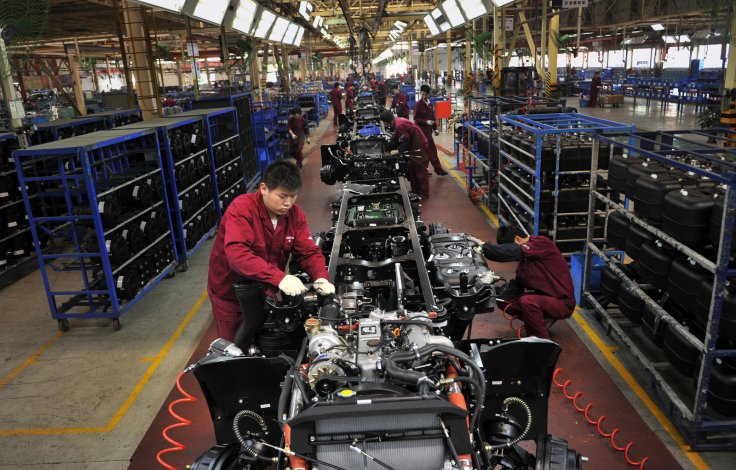
China's factory activity contracted in December for the first time in more than two years, in a further sign of slackening demand and rising pressure on the world's second-largest economy as it heads into 2019.
The official Purchasing Managers' Index fell to 49.4 in December, below the critical 50-point level that separates growth from contraction, according to data released by the National Bureau of Statistics (NBS) on Monday.
It was the first contraction since July 2016 and the weakest PMI reading since February 2016 when it came in at 49.0. Analysts surveyed by Reuters had forecast the official gauge would fell to 49.9 for the month.
The increasing strain on factories signals a continued loss of economic momentum and raises the risks to both China and the global economy, especially if Sino-U.S. trade tensions persist.
There are already signs trade frictions between the economic giants are hurting global supply chains with concerns the effects could become more pronounced next year in a blow to world trade and investment.
Chinese authorities are expected to roll out more supportive measures on top of a range of policy initiatives this year. A prolonged downturn in the factory sector, key for jobs and the overall health of the economy, would likely draw further steps to juice up domestic demand.
There is also uncertainty over whether China and the United States can bridge their differences during a temporary ceasefire in their trade war.
At the beginning of this month, U.S. President Donald Trump and Chinese President Xi Jinping agreed to a 90-day ceasefire that delayed the planned Jan. 1 U.S. increase of tariffs on $200 billion worth of Chinese goods while they negotiate a trade deal.
New export orders contracted for a seventh straight month on faltering external demand, with the sub-index falling to 46.6 from the previous month's reading of 47.0.
"There are many short-term orders from overseas but few long-term orders received by Chinese factories as caution remains amid the trade uncertainties," Nie Wen, economist at Hwabao Trust in Shanghai, said before the PMI release.
"The medium to long-term export prospect is not optimistic particularly."
In contrast the factor activity gauge, the official non-manufacturing PMI, also released on Monday, rose to 53.8 from 53.4 in November, well above the 50-point mark that separates growth from contraction.
The services sector accounts for more than half of China's economy, with rising wages giving Chinese consumers more spending power. But consumer demand and confidence have been faltering recently in a sign of growing pressure on the economy.









